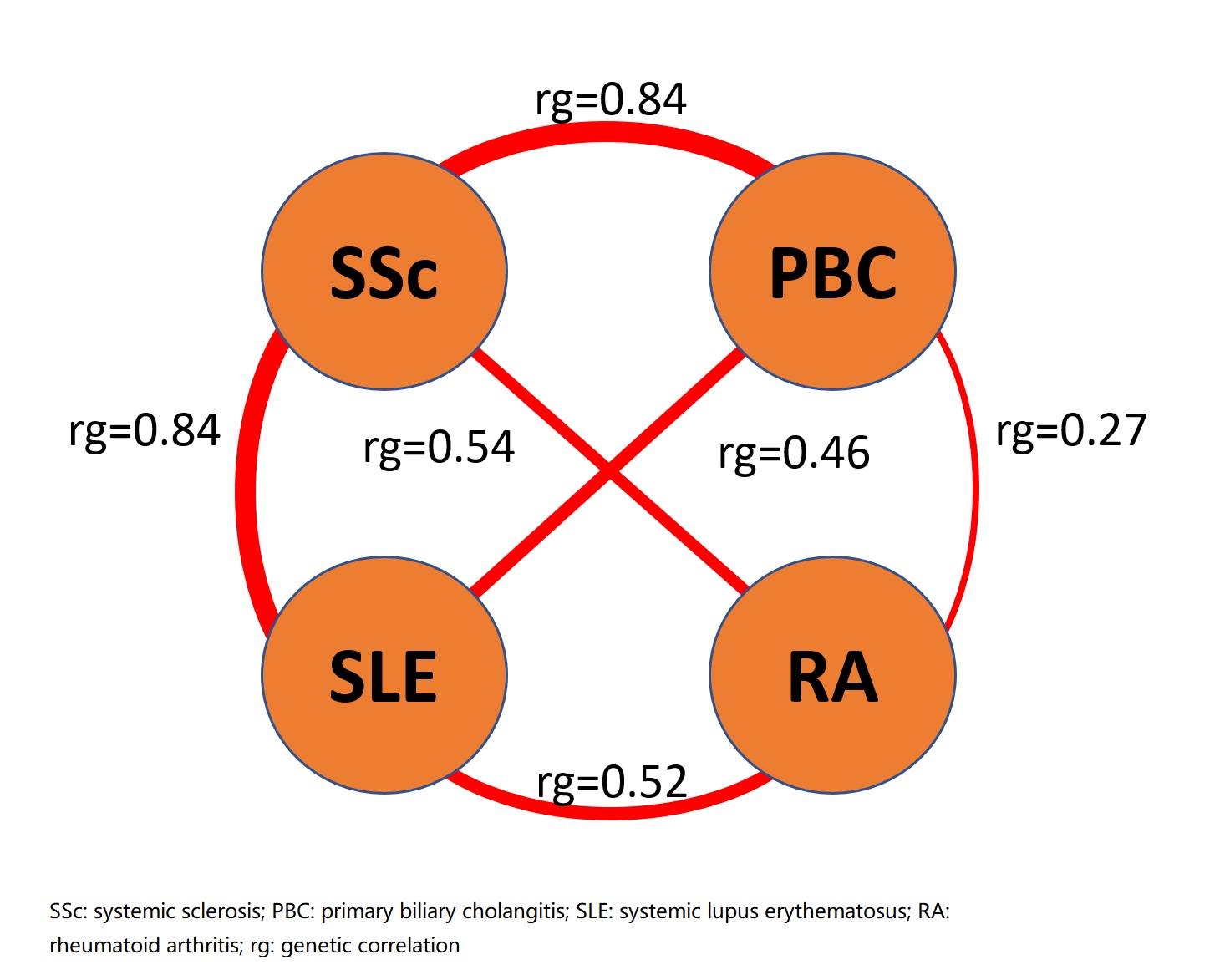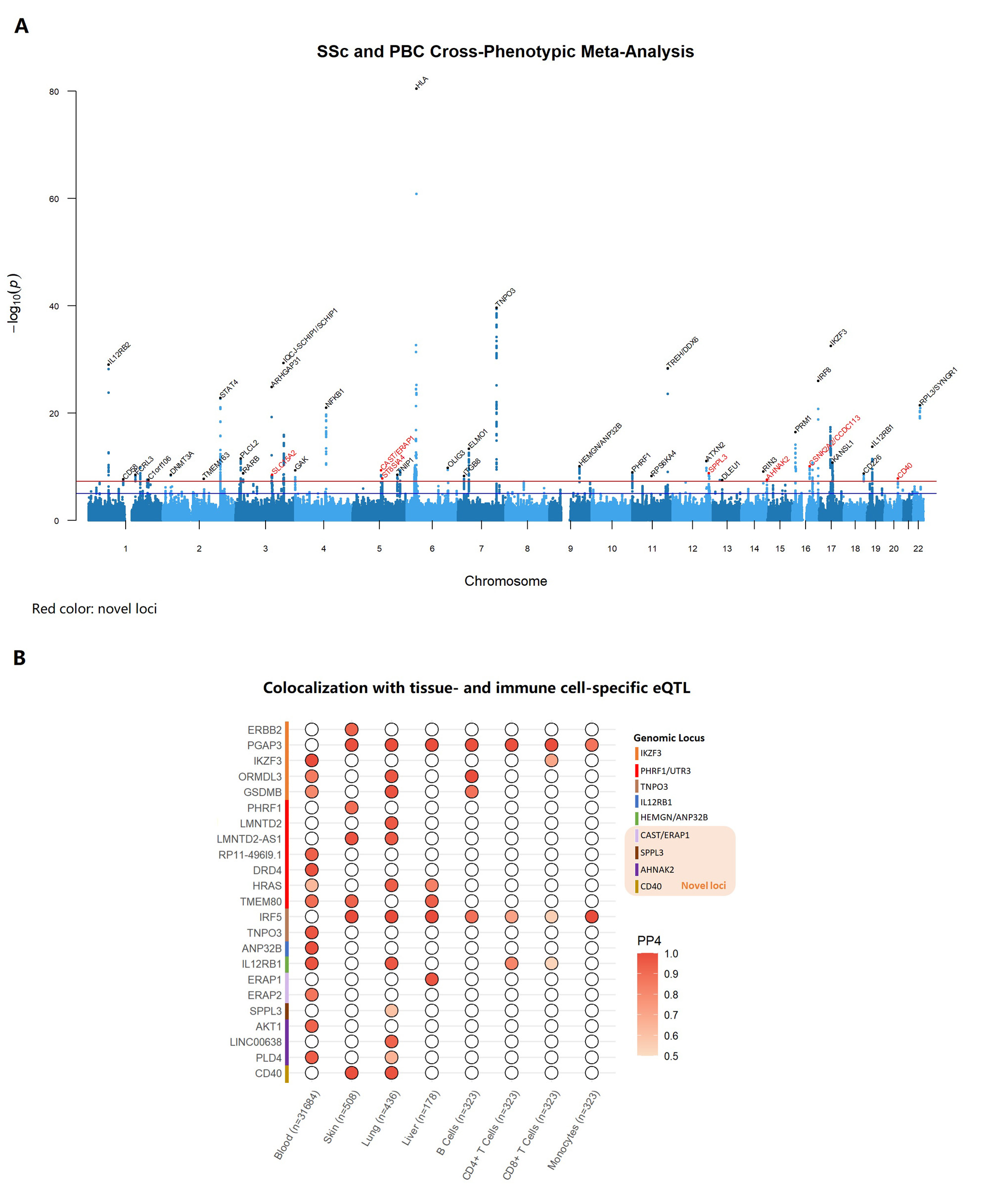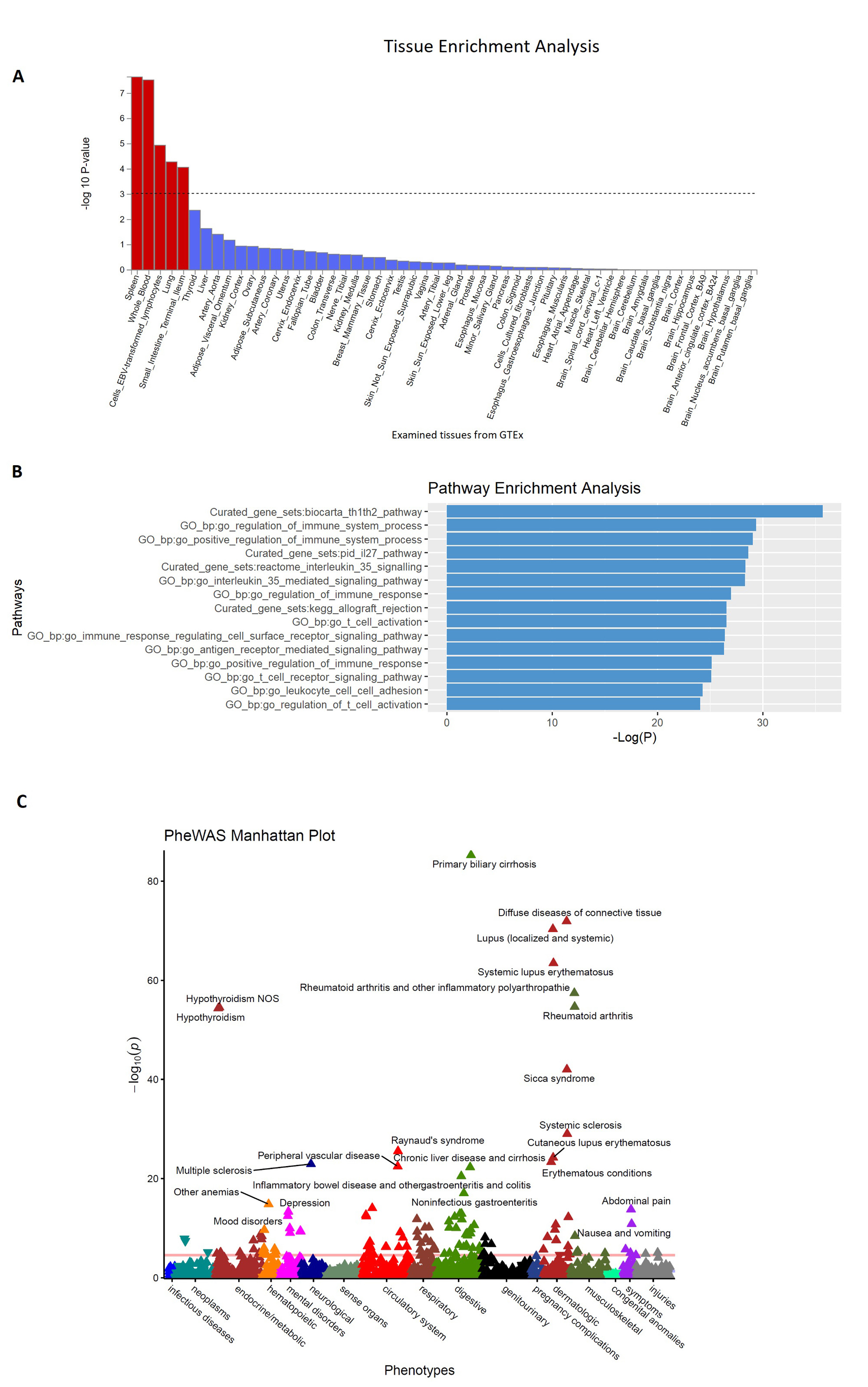Session Information
Date: Monday, November 13, 2023
Title: (0934–0964) Systemic Sclerosis & Related Disorders – Basic Science Poster
Session Type: Poster Session B
Session Time: 9:00AM-11:00AM
Background/Purpose: Systemic sclerosis (SSc) is a multi-system autoimmune disorder characterized by organ inflammation, fibrosis, and vasculopathy. Primary biliary cholangitis (PBC) is an autoimmune disorder involving inflammation and fibrosis of the intrahepatic biliary tract. An increased risk of PBC has been noted in patients with SSc. Our study aims to investigate the shared genetic susceptibility between the two disorders using data from genome-wide association studies (GWAS).
Methods: We obtained the GWAS summary statistics for SSc, PBC, rheumatoid arthritis (RA), and systemic lupus erythematosus (SLE) from the GWAS Catalog website. We performed a genetic correlation analysis using linkage disequilibrium score regression (excluding HLA region) and a cross-phenotype GWAS meta-analysis of SSc and PBC, followed by colocalization to investigate whether the pleiotropic signals were driven by shared causal variants. For genomic loci that were significant in the cross-phenotype meta-analysis and colocalized between SSc and PBC, we further performed colocalization with expression quantitative trait loci (eQTL) in relevant tissues and immune cells from the blood eQTLGen consortium, Genotype-Tissue Expression (GTEx), and Correlated Expression & Disease Association Research (CEDAR). Additionally, we performed tissue and pathway enrichment analyses using MAGMA (Multi-marker Analysis of GenoMic Annotation) on the cross-phenotype meta-analysis statistics. Finally, we performed meta-phenome-wide association studies (meta-PheWAS) on the calculated polygenic risk score (PRS) of the SSc-PBC meta-analysis using data from the Electronic Medical Records and Genomics Network, All of Us and UK Biobank.
Results: The GWAS summary statistics included 9,095 cases and 17,584 controls for SSc and 8,021 cases and 16,489 controls for PBC. There was a strong genetic correlation between SSc and PBC (rg = 0.84, p = 1.7 x 10-6), in which the effect estimate was comparable to the genetic correlation between SSc and SLE (rg = 0.84, p = 1.6 x 10-15) (Figure 1). There were 44 non-HLA loci that reached genome-wide significance (p < 5 x 10-8) in the cross-phenotype GWAS (Figure 2A). Evidence of shared causal variants between SSc and PBC was found in 13 out of the 44 significant loci in the colocalization analyses. Nine of the 13 loci showed evidence of shared causal variants with at least one expressed gene in the examined eQTL datasets. Among the 4 novel loci, eQTL colocalized transcripts included ERAP1, ERAP2, SPPL3, AKT1, PLD4, and CD40 (Figure 2B). These represented the predicted changes in gene expression resulting from the shared genomic signals between SSc and PBC. MAGMA prioritized multiple immune-related tissues and molecular pathways (Figures 3A and 3B). The meta-PheWAS revealed that the PRS calculated from the SSc-PBC meta-analysis was associated with multiple autoimmune phenotypes (Figure 3C).
Conclusion: We identified shared genetic susceptibility between SSc and PBC and prioritized several candidate genes by eQTL colocalization analyses. Our findings suggest that the genetic predisposition to SSc and PBC has pleiotropic effects across multiple autoimmune disorders.
To cite this abstract in AMA style:
Luo Y, Khan A, Perreault G, Liu L, Lee C, Gourh P, Pomenti S, Kiryluk K, Bernstein E. Shared Genetic Susceptibility Between Systemic Sclerosis and Primary Biliary Cholangitis: Analyses from Genome-Wide Association Studies [abstract]. Arthritis Rheumatol. 2023; 75 (suppl 9). https://acrabstracts.org/abstract/shared-genetic-susceptibility-between-systemic-sclerosis-and-primary-biliary-cholangitis-analyses-from-genome-wide-association-studies/. Accessed .« Back to ACR Convergence 2023
ACR Meeting Abstracts - https://acrabstracts.org/abstract/shared-genetic-susceptibility-between-systemic-sclerosis-and-primary-biliary-cholangitis-analyses-from-genome-wide-association-studies/



